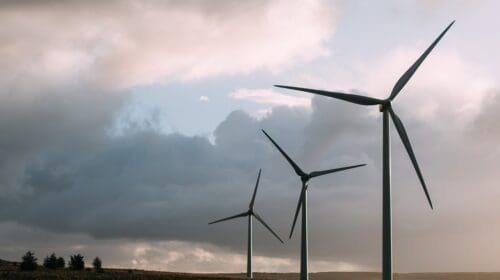Fueled by a bleak economy, Orsted left the agreement table regarding two offshore wind projects. These agreements were initiated several years ago with the Maryland Public Service Commission (PSC) approving the Skipjack Wind 1 and Skipjack Wind 2 projects in addition to a 20-year Offshore Renewable Energy Credit (OREC). Once touted by Maryland Democrats as a critical segment of the state’s decarbonization plan, the wind has been stolen from the projects’ sales.
“Today’s announcement affirms our commitment to developing value creating projects and represents an opportunity to reposition Skipjack Wind, located in a strategically valuable federal lease area and with a state that is highly supportive of offshore wind, for future outtake opportunities,” said David Hardy, group executive and vice president and CEO of Orsted’s Americas division, in a Thursday statement. “As we explore the best path forward for Skipjack Wind, we anticipate several opportunities and will evaluate each as it becomes available.”
Hardy pointed to “challenging economic circumstances” as the inspiration for making the decision. Orsted considers the current ORECs specified in the agreement to carry less value due to various indicators such as inflation, market conditions, high interest rates, and supply chain constraints. As a result, the project lies in a holding pattern and is only canceled for a while. Orsted conducted its due diligence and submitted a current Construction and Operations Plan to the U.S. Department of the Interior.
“Governor Moore is disappointed by the news of Orsted’s repositioning of the Skipjack Wind project, an effort that has the capacity to impact the lives of so many Marylanders,” said Carter Elliot, spokesman for Democratic Maryland Governor Wes Moore, in an email to Fox News. “However, he will continue to work with legislators, Maryland’s federal partners, offshore wind developers, and advocates that see Maryland’s potential to build a system to help Maryland reach the state’s goal of 100 percent clean energy by 2035. If this is going to be Maryland’s decade, we must continue to push forward to reach the ambitions climate goals, and the governor is as committed as ever to doing just that.”
The Orsted projects would have been constructed approximately twenty miles off the Delmarva Peninsula and brought online by 2026, producing 966 megawatts in capacity, which could have powered hundreds of thousands of homes. With the Orsted projects removed from the portfolio, Maryland now benefits from only two proposed wind projects: the MarWin project with a 300-megawatt capacity and the Momentum Wind Project with an 800-megawatt capacity. These projects will be developed by U.S. Wind of Baltimore and constructed off the coast of Ocean City, Maryland.
The Maryland PSC released a statement responding to the Orsted decision. While disappointed, the commission remained committed to achieving clean energy goals.
“Yesterday’s news from Orsted is disappointing—the Skipjack project was an important component in advancing Maryland’s clean energy goals,” said Frederick Hoover, Maryland PSC Chairman, in the statement. “However, the commission remains optimistic about the future of the offshore wind industry in Maryland and would note that the U.S. Wind project continues to move through the federal approval process.”
The latest developments with Skipjack Winds projects one and two only ratify a growing trend in this sector. Not only did Orsted previously cancel its Ocean Wind 1 and Ocean Wind 2 projects off the coast of New Jersey, but Equinor and B.P. put the brakes on its Empire Wind 2 project with the state of New York.
This retreat in wind project success has negatively impacted the Biden administration’s clean energy goals, including deploying 30 gigawatts of offshore wind energy by 2030. Additionally, the administration forecasts a complete decarbonization of the power grid by 2035.
“These projects are unaffordable, they are ridiculous,” said Dave Stevenson, director for energy Competitiveness at the Caesar Rodney Institute, in a Fox News digital interview. “The question really does become, in light of these disruptions and price increases, why shouldn’t we expect more?”
Stevenson, who also serves as the American Coalition for Ocean Protection president, points to a situation that is continuing to unravel. Considering a clear message, he feels the industry is not ready for these types of wind projects.
“These projects should just stop,” said Stevenson. “Let’s take another path as to how we’re going to generate electricity down the road.”
Nick Vaccaro is a freelance writer and photographer. In addition to providing technical writing services, he is an HSE consultant in the oil and gas industry with twelve years of experience. Vaccaro also contributes to SHALE Oil and Gas Business Magazine, American Oil and Gas Investor, Oil and Gas Investor, Energies Magazine and Louisiana Sportsman Magazine. He has a BA in photojournalism from Loyola University and resides in the New Orleans area. Vaccaro can be reached at 985-966-0957 or nav@vaccarogroupllc.com.
Oil and gas operations are commonly found in remote locations far from company headquarters. Now, it's possible to monitor pump operations, collate and analyze seismic data, and track employees around the world from almost anywhere. Whether employees are in the office or in the field, the internet and related applications enable a greater multidirectional flow of information – and control – than ever before.









